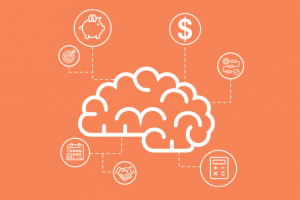For a country that saw 4.4 million businesses start up last year (which is 24% more than the year before), there is still disagreement as to what entrepreneurship means. The term can be vague sometimes — how often have we heard someone call themselves an entrepreneur when they have yet to truly start a business? — but true entrepreneurship has been crucial to a healthy economy for decades. The confusion can come from just how many types of business owners there are out there.
What Does it Mean to Be an Entrepreneur?
At its simplest, an entrepreneur is a person who creates their own business. Business owners have existed for centuries, but it was only in the middle of the 20th century that their numbers boomed and economists started to recognize their roles in the economy. By including everybody with a side hustle or freelance job today (about 35% of the total workforce last year), it becomes clear that entrepreneurship is very much alive in the 21st century.
Starting a business may seem overwhelming, but millions of people have found success with the right business plan, team, funding and resources.
Starting a business may seem overwhelming, but millions have found success with the right business plan, team, funding, and resources. Traditionally, an entrepreneur is someone who has an idea for a good or service that fills a need in the market. They take on all the risk of starting a business and their rewards are the profits and lifestyle afforded them as business owners. Traditional employees may have a clearer career path, but they lose the flexibility and freedom that comes with being an entrepreneur. On the other hand, there are much bigger consequences as an entrepreneur when a business fails than losing a job as an employee.
What if we could lessen the risk and still see the rewards? Backed by a belief in the power of entrepreneurship, companies like First Financial Security, Inc. have a mission to correct job market biases by helping those with fewer resources who want to start their own business. For a long time, what worked for some entrepreneurs would not work the same for others. After decades of trial and error, there is now a proven system — with concepts like the Business Building System, opportunities arise for those with the focus and flexibility necessary to become entrepreneurs.
Traditional employees may have a clearer career path, but they lose the flexibility and freedom that comes with being an entrepreneur.
Working to Live Instead of Living to Work
Entrepreneurship has changed over the past 20 years as technology makes networking and administration faster and easier. But one thing remains the same: entrepreneurship offers a different approach to work-life balance. Building a business means having the strength to stand on your own and grants business owners more control over their daily lives. In the process, they also fuel the economy, provide jobs for their teams, and offer goods and services that can improve their communities.
If you have the drive to build a business in the financial services industry, First Financial Security can help. We provide entrepreneurs with support through back-office technology, administration, marketing, and more. To become an entrepreneur in a thriving industry and bring people financial security and peace of mind, connect with FFS today.
FFS Agents – share this post with your networks using our resources in the ABO.




